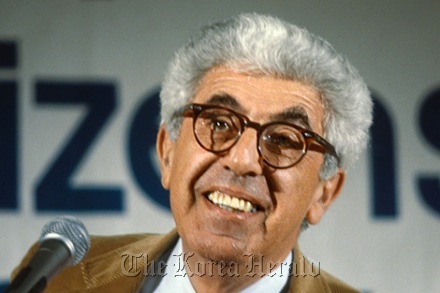NEW YORK (AP) ― Barry Commoner, a scientist and activist who raised early concerns about the effects of radioactive fallout and was one of the pioneers of the environmental movement, has died in New York. He was 95.
Commoner died Sunday afternoon at a Manhattan hospital, where he had been since Friday, said his wife, Lisa Feiner. He lived in Brooklyn Heights.
Commoner was an outspoken advocate for environmental issues. He was one of the founders of a well-known survey of baby teeth in St. Louis that started in the late 1950s. The survey assessed the levels of strontium-90 in the teeth and showed how children were absorbing radioactive fallout from nuclear bombs that were being tested.
The survey helped persuade government officials to partially ban some kinds of nuclear testing.
 |
Barry Commoner |
“He had a very strong belief that scientists had a social responsibility, that the discoveries would be used for social good, and that scientists also had an obligation to educate the public about scientific issues so that the public could make informed political decisions,” Feiner said.
He took on that role of educating the public, writing books on environmental issues. Among his works were “Making Peace with the Planet” and “Science and Survival.” He made the cover of Time magazine in early 1970 and ran for president as a third-party candidate in 1980.
He founded the Center for the Biology of Natural Systems at Washington University in St. Louis in 1966; he moved it to New York’s Queens College in 1981 and headed it until 2000.
Born and raised in Brooklyn, Commoner went to Columbia University, majoring in zoology. He got his doctorate in cellular biology from Harvard University.
Along with his wife, survivors include his two children from his first marriage, Lucy Commoner and Frederic Commoner, and a granddaughter.








